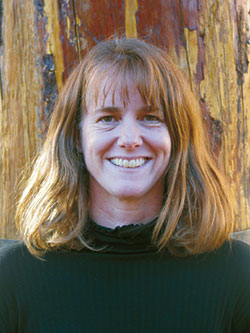|
Sometimes early students of writing will think they are turning in a story, when what they've written is a nice description of a human experience. They often refer to these as "slice-of-life" stories. Describing a human experience can certainly lead a writer into a good, full short story, but the human experience must be layered and rich and textured and have a happening at its core. One can't, for instance, just describe what he/she had for breakfast and call it a story, even though eating breakfast is a human experience.
What all stories must have is a central happening. If nothing really happens, then you don't have a short story. I often see this in workshop with early attempts at fiction. There will be some lovely and detailed description, or something that reads like a well-written journal entry. It's all fine, and students will compliment the writing, as they should, but I have to eventually pose the question, "What happened in this story?" If everyone looks stumped, or comes up with all different answers to that question, then there really was no clear central happening, which means what the student has written is not yet a story. This may sound overly simplistic, but you would be surprised how many early attempts at short-story writing lack the key ingredient of a happening. My favorite definition of a short story is also the shortest one I've ever heard: Something happens.
|


